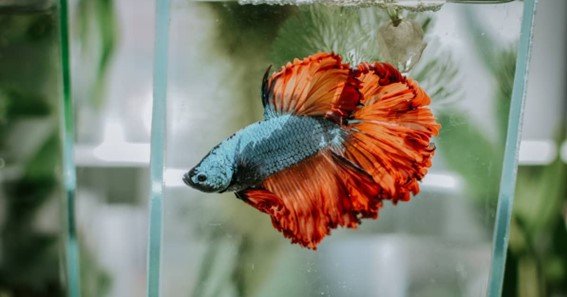Maintaining a clean and healthy environment for your betta fish is crucial for their well-being. But the question many new fish owners ask is, how often to clean a betta fish tank? Having the right cleaning schedule ensures that your fish stays healthy and happy while the water remains clear and free of harmful chemicals. In this article, we’ll explore the best practices for cleaning your betta tank, including how often to clean and what steps to follow for optimal tank maintenance.
How Often to Clean a Betta Fish Tank: The Key to Healthy Living
Betta fish are hardy, but like any pet, they need a clean environment to thrive. Determining how often to clean a betta fish tank depends on several factors such as tank size, the number of fish, and whether or not you have a filter. Let’s break down the optimal cleaning intervals for betta tanks to keep your fish in top shape.
1. Betta Fish Tank Cleaning Schedule for Small Tanks (1-5 Gallons)
If your betta lives in a small tank without a filter, you’ll need to clean it more often. A good betta fish tank cleaning schedule for small tanks is at least once a week. In these tanks, waste builds up faster, which can lead to toxic ammonia spikes that harm your fish.
- Weekly partial water changes: Remove 20-30% of the water and replace it with clean, conditioned water.
- Monthly full clean: Clean the tank’s substrate, decorations, and walls to prevent algae and dirt buildup.
2. Frequency of Cleaning Betta Fish Tank with a Filter
A filter helps reduce the need for frequent cleaning by keeping the water circulating and removing waste. In a filtered tank, the frequency of cleaning betta fish tank can be reduced to every 2 weeks for partial water changes and a full clean once a month.
- Bi-weekly partial water changes: Change about 20-25% of the water.
- Monthly full clean: Clean the substrate, filter media, and decorations.
3. How Regularly to Clean Betta Tank in Larger Aquariums (10 Gallons and Above)
If you have a larger, filtered tank, the cleaning routine for betta fish tank can be spaced out even further. For tanks larger than 10 gallons, a partial water change every 2-3 weeks should suffice, along with a monthly deep clean. The larger water volume helps maintain stable water conditions for longer periods.
4. Best Cleaning Schedule for Betta Tank: Tailored to Your Setup
Every betta tank setup is different, so the best cleaning schedule for betta tank will depend on factors like tank size, filtration, and whether you have live plants. Live plants can help absorb waste, which may reduce the need for frequent water changes. However, regularly testing water parameters for ammonia, nitrites, and nitrates will guide you on how often to clean your betta tank.
FAQ
1. How often should I clean my betta fish tank if it has no filter?
For a betta tank without a filter, the general rule is to do partial water changes once a week and a full cleaning once a month. This prevents harmful bacteria and ammonia buildup.
2. Do I need to clean a betta tank with a filter as often?
If your betta tank has a filter, you can reduce the cleaning frequency to every two weeks for partial water changes and once a month for a full clean. The filter helps maintain water quality.
3. How many times should I clean a betta tank with live plants?
Live plants can help with water quality, so tanks with plants may require less frequent cleaning. Aim for partial water changes every 2-3 weeks and monitor water parameters to determine if more frequent cleaning is needed.
4. What is the best cleaning routine for a betta fish tank?
The best cleaning routine for betta fish tank includes regular partial water changes every 1-2 weeks, cleaning the filter media monthly, and a deep clean of the entire tank at least once a month.
5. Can I clean the tank too often?
Yes, cleaning the tank too often or changing too much water at once can stress your betta fish by disrupting the beneficial bacteria in the tank. Stick to partial water changes and clean gradually to maintain a balanced ecosystem.










